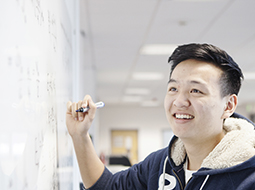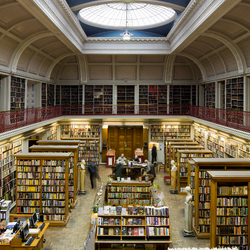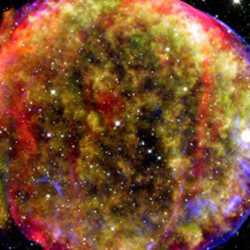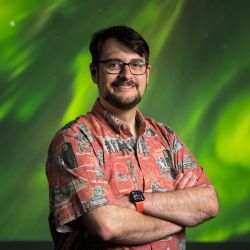We have a range of state-of-the-art specialist laboratories and facilities that will support you, and we have spent £10million updating these in recent years. Whatever your specific degree across our range of courses, our spectacular specialist labs and facilities will help you reach your potential.
Throughout your work, whether undergraduate, postgraduate or research, you will be able to measure, explore, experiment and model developments that are changing the way we all live our lives. Click below to read more about our state-of-the-art equipment that will benefit you:
Laser Lab (Class 4)
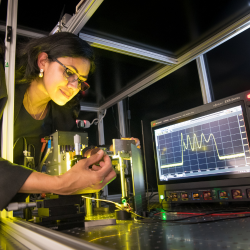
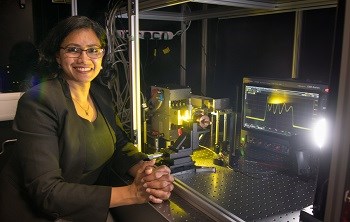
Examples of recent success include:
Thin Films Lab
Thin film deposition suite at Northumbria University is equipped with state-of-the-art facilities for rapid development of novel materials, using both physical and chemical vapour deposition techniques. The lab is equipped with 4 highly advanced sputtering systems for various application. The Minilab 125 series dual chamber sputtering system from Moorfield Nanotechnology Ltd. can accommodate 7 different targets in its two chambers, thereby enabling production of complex multilayered functional stacks within the same system. The two magnetron NanoPVD S10A bench top sputtering system from Moorfield Nanotechnology Ltd. is ideal for quick turnaround R&D experiments whereas our industry grade, Teer coating UDP 350 with 4 magnetrons in co-sputtering mode is an ideal choice to develop thin films on bigger substrate sizes. The lab will soon be equipped with its first fully automatic dual chamber thin film deposition system with highly reliable in-situ ellipsometry characterization functionality. Beside sputtering, the lab also provides E-beam and thermal evaporation as choice of thin film deposition for various metalic and non-metalic materials. Extremely thin (<1nm) and highly conformal films can be deposited on a variety of substrate using our advanced Theia atomic layer deposition tool from forge Nano, USA. The tool has the capability to dose very small amount of gaseous precursor and activating agent in alternative cycles which lends great control over thin film thickness as it grows.
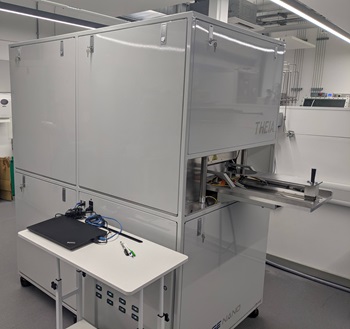
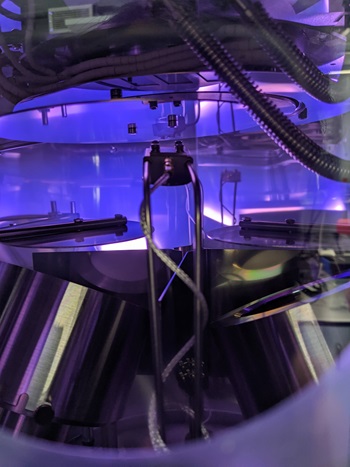
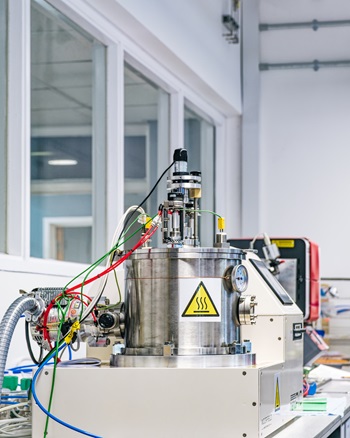
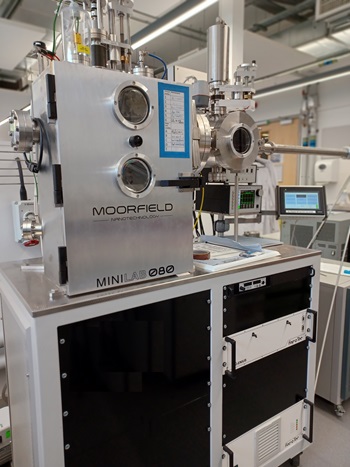
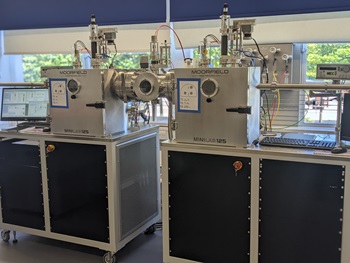
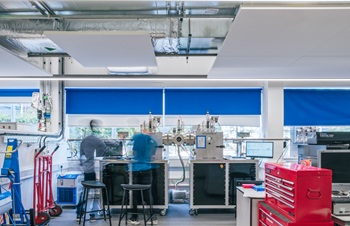
Examples of recent success include:
Materials Research Lab
These labs house a host of specialist equipment for both material processing and characterization purposes. Material processing lab provides facility tube furnace facilities which can be used to heat treat material under condition varying from open air to under vacuum and under inert or reactive gas atmosphere. The labs also house tube furnaces systems specifically designed to handle hazardous materials in a safe manner. The systems like Photonic curing system from Novacentrox Pulse Forge USA generates bursts of high energy photons which can be used to heat treat thin layers of material deposited on heat sensitive substrates without degrading the underlying substrate.
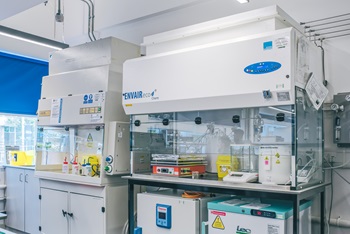
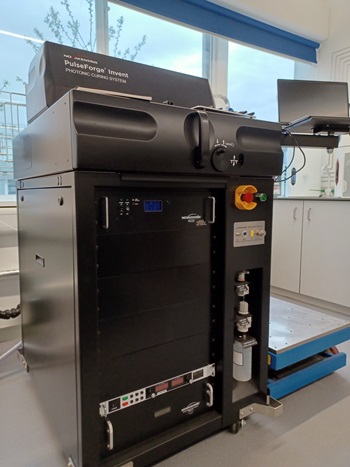
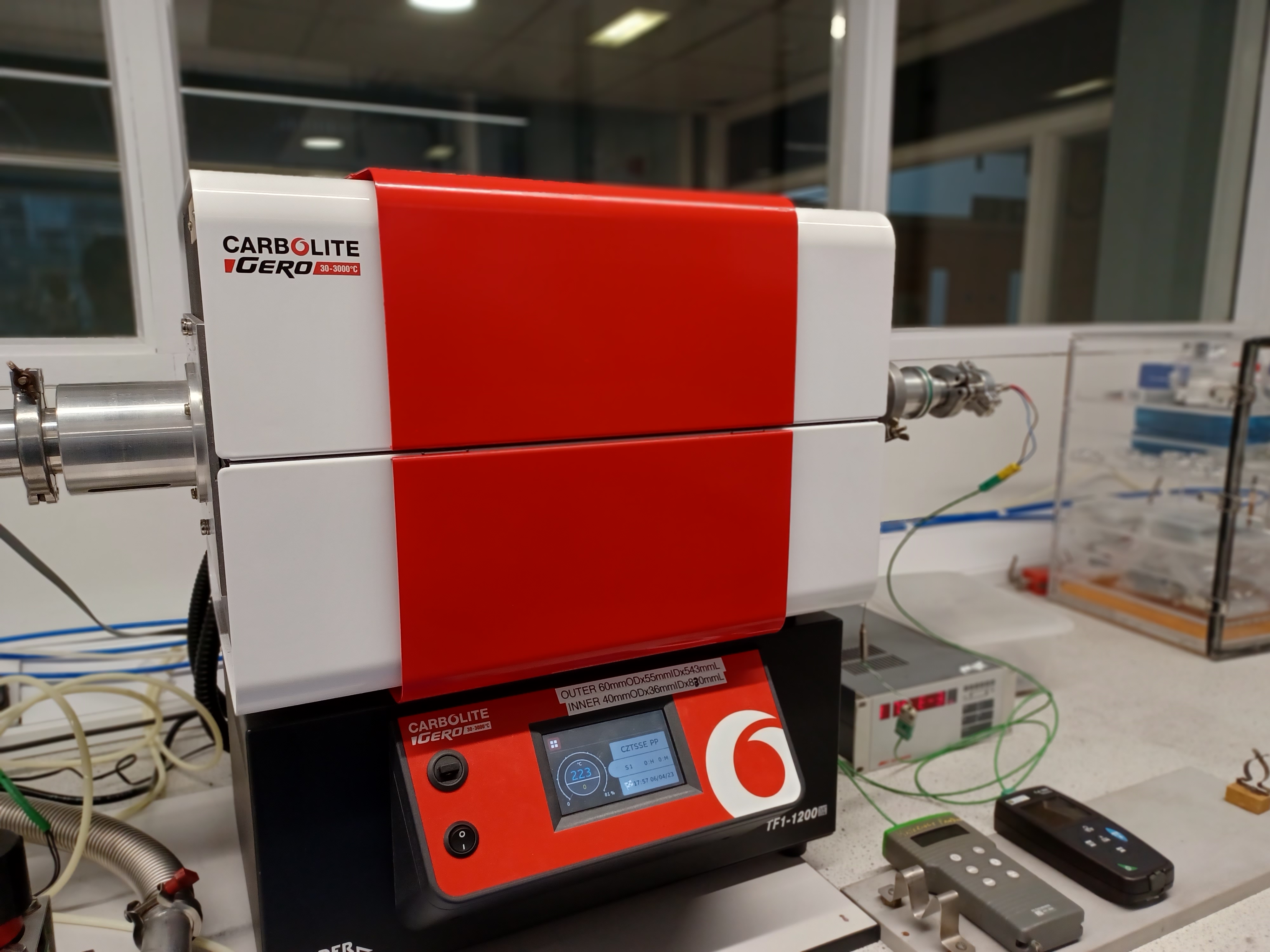
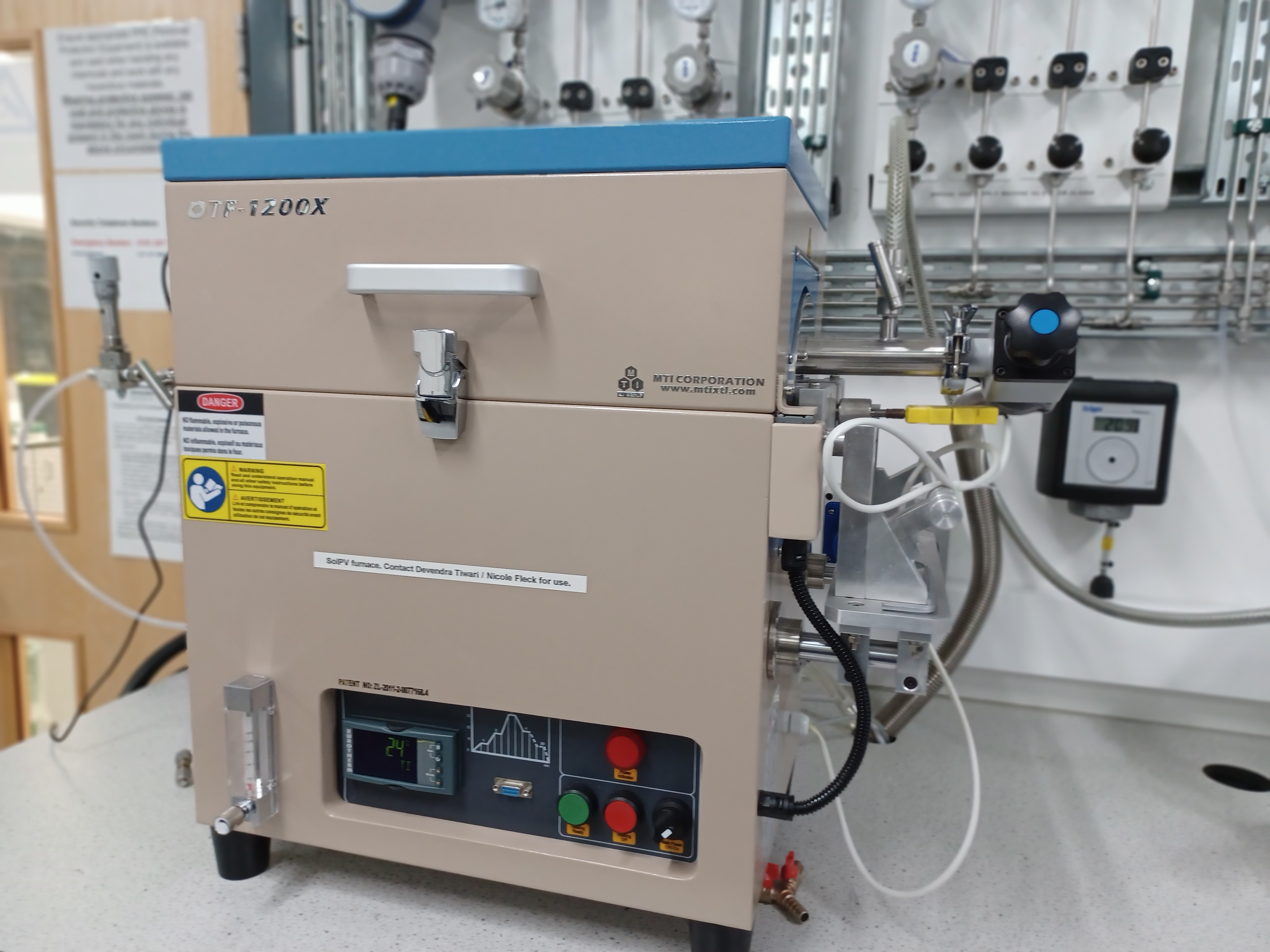
Northumbria Materials Characterisation Lab (NMCL)
The Northumbria Materials Characterisation Laboratory (NMCL) is equipped with a modern and advanced sub-nanometer resolution Field Emission Gun Scanning Electron Microscope (FEG-SEM). The capability of our system is not limited to high resolution imaging. Thanks to our advanced EDS (Energy Dispersive Spectroscopy) and WDS (Wave Dispersive Spectroscopy) detectors directly mounted into the microscope we can also provide state of the art simultaneous high resolution imaging combined with ultra-high resolution low energy atomic composition point and mapping analysis.
Scanning Electron Microscope System TESCAN MIRA
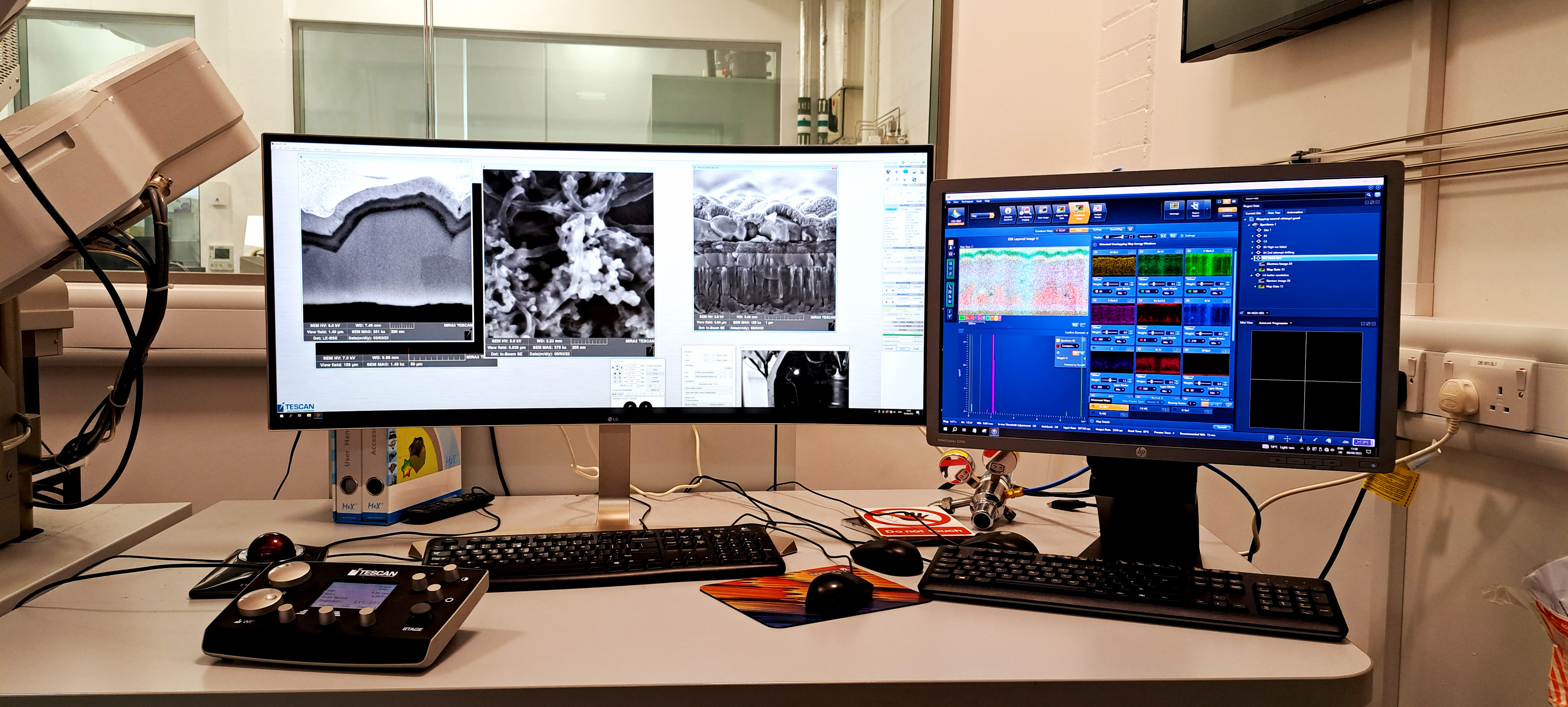
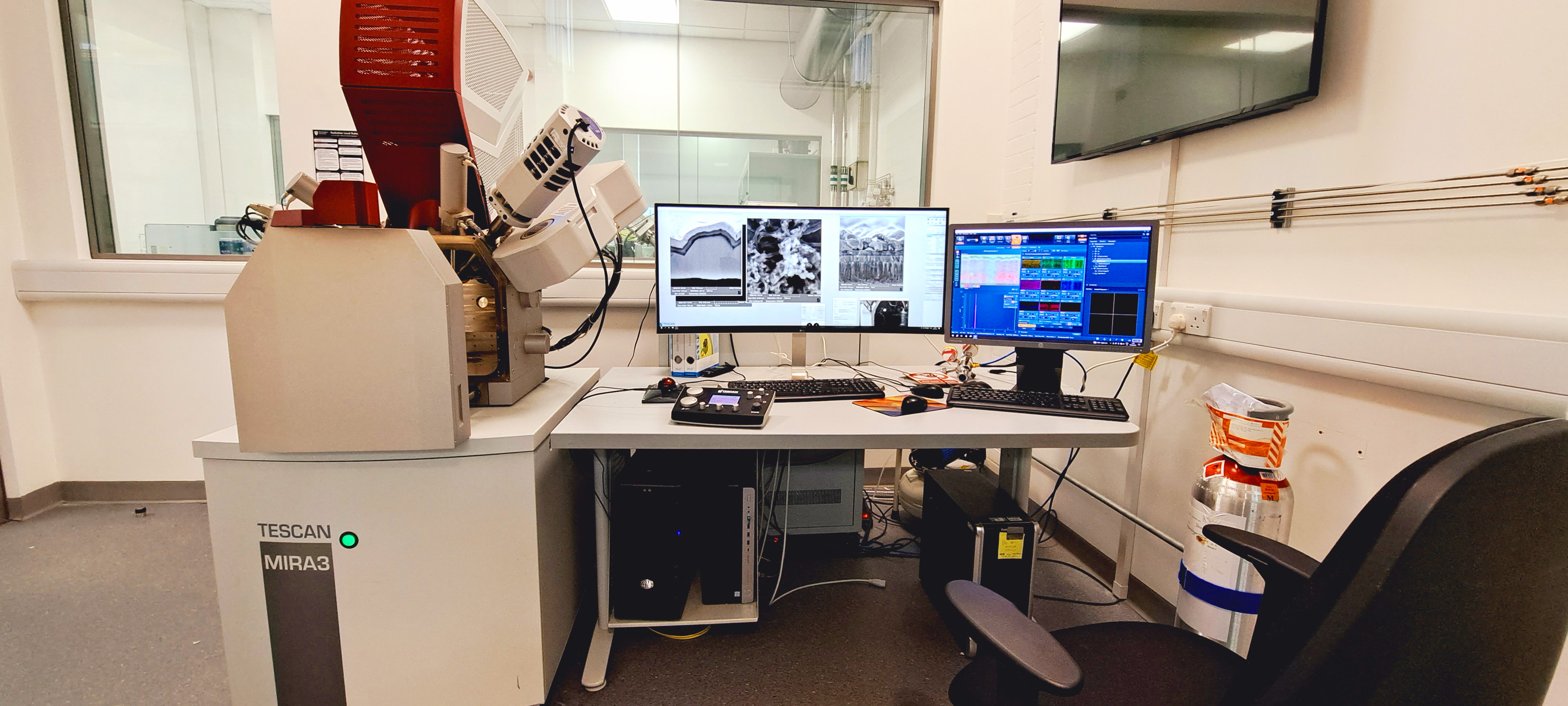
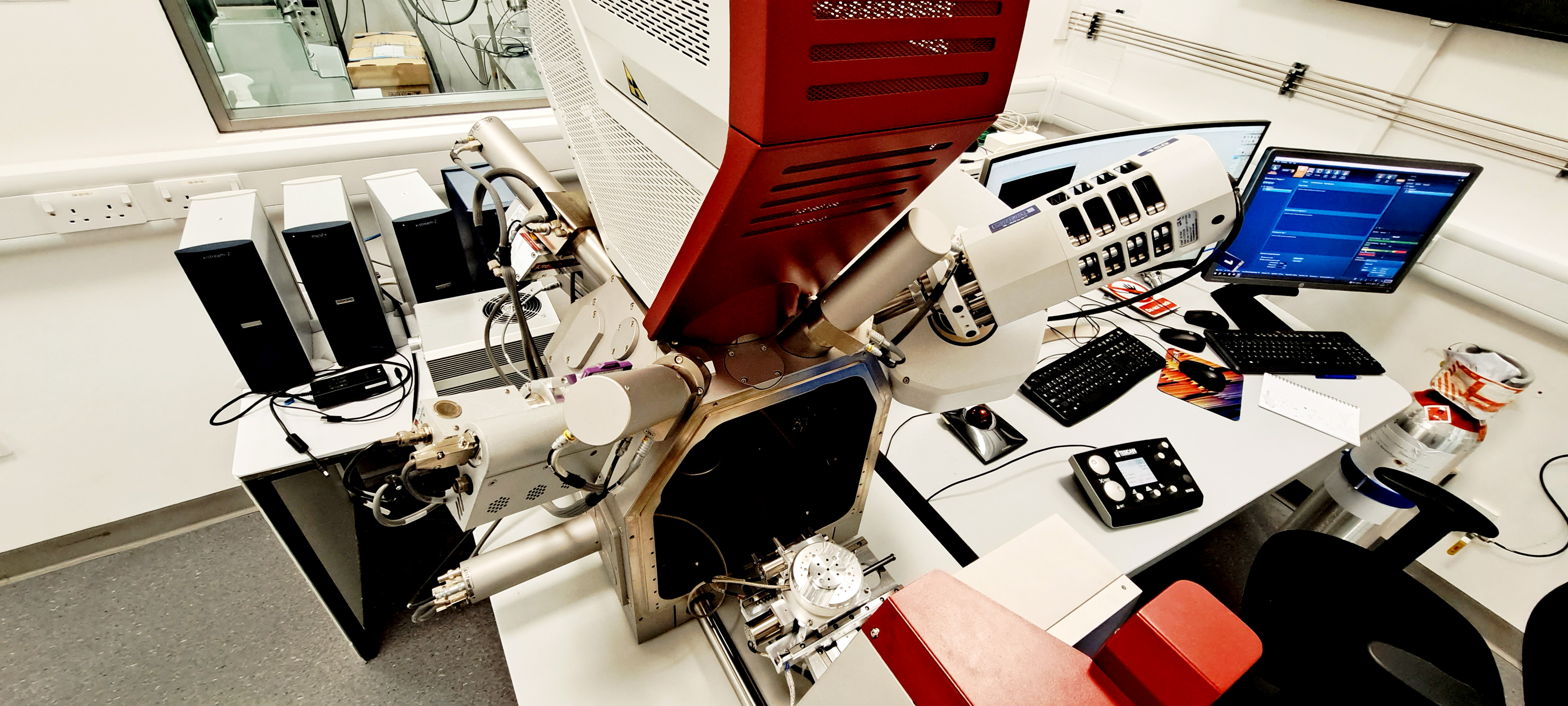
Secondary Ion Mass Spectrometer
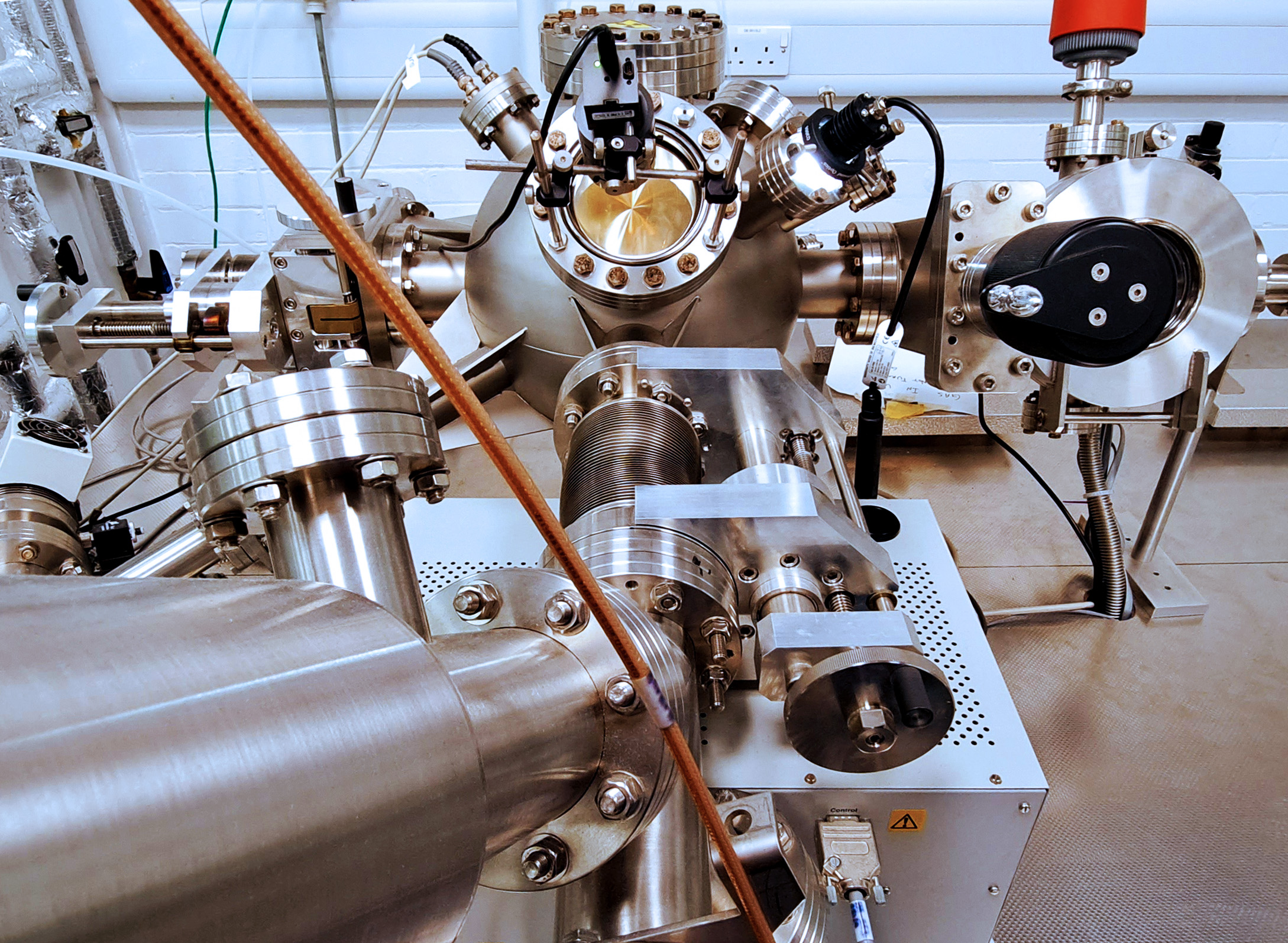
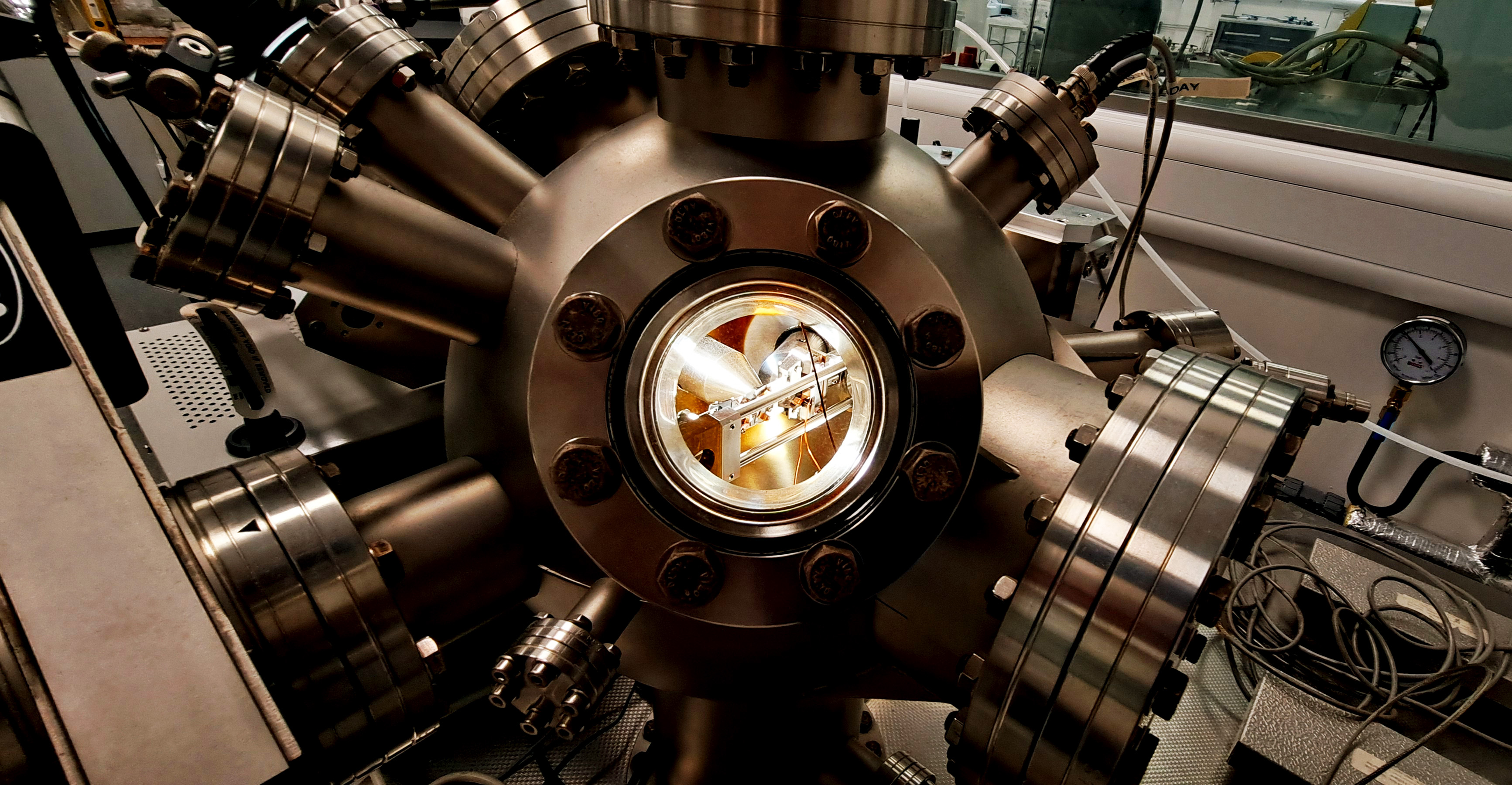
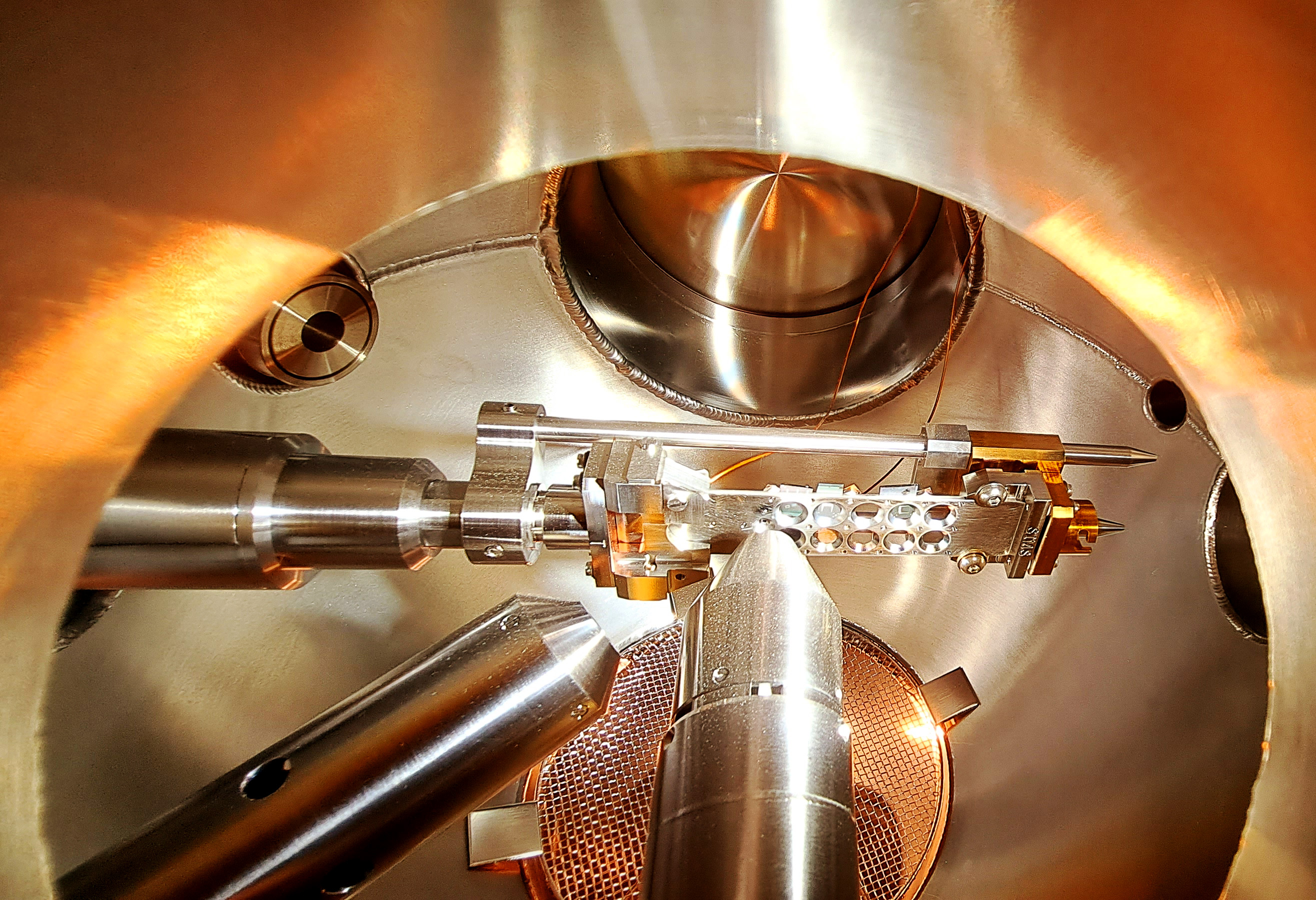
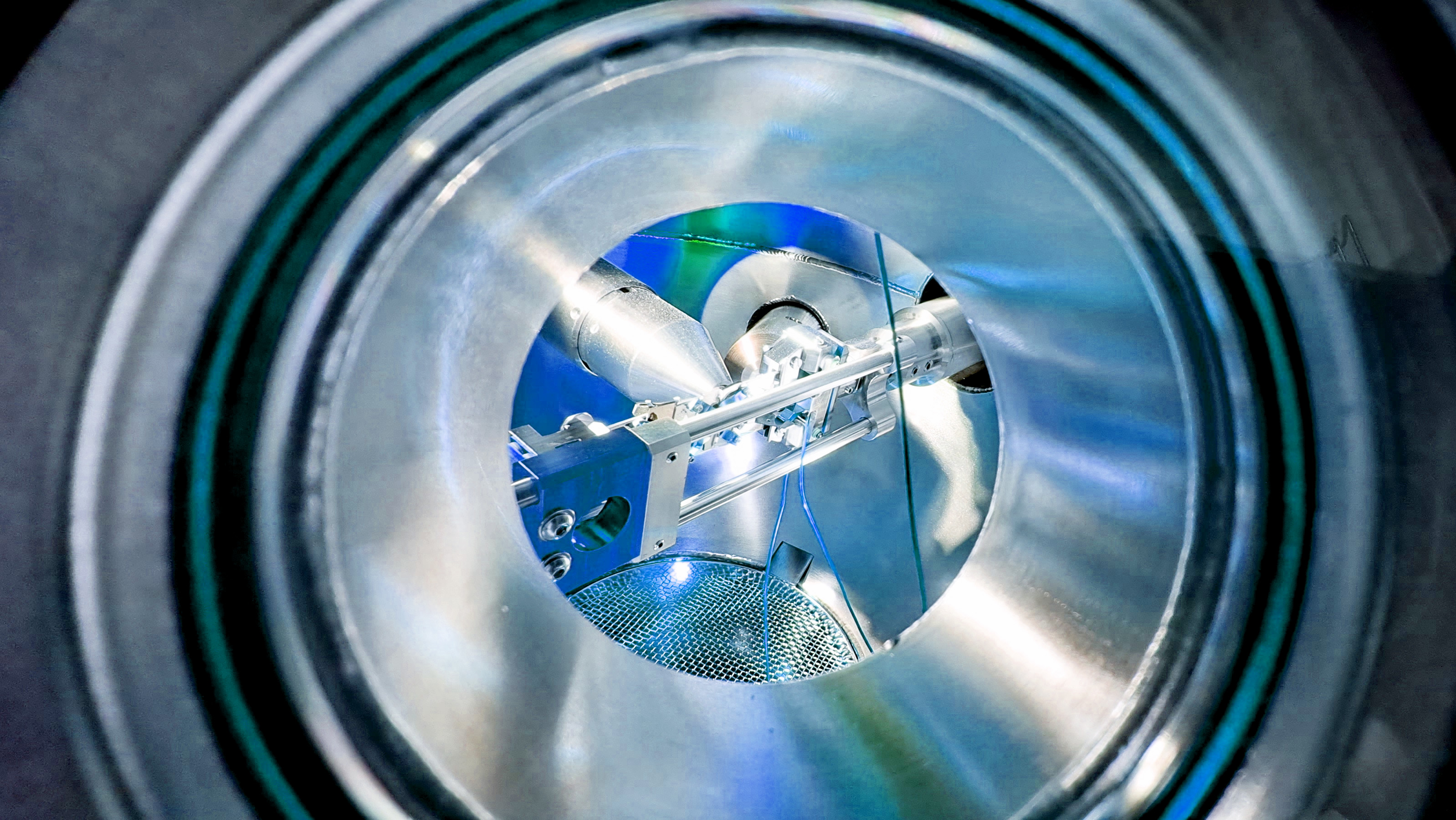
X-ray Diffractometer Rigaku Smartlab II
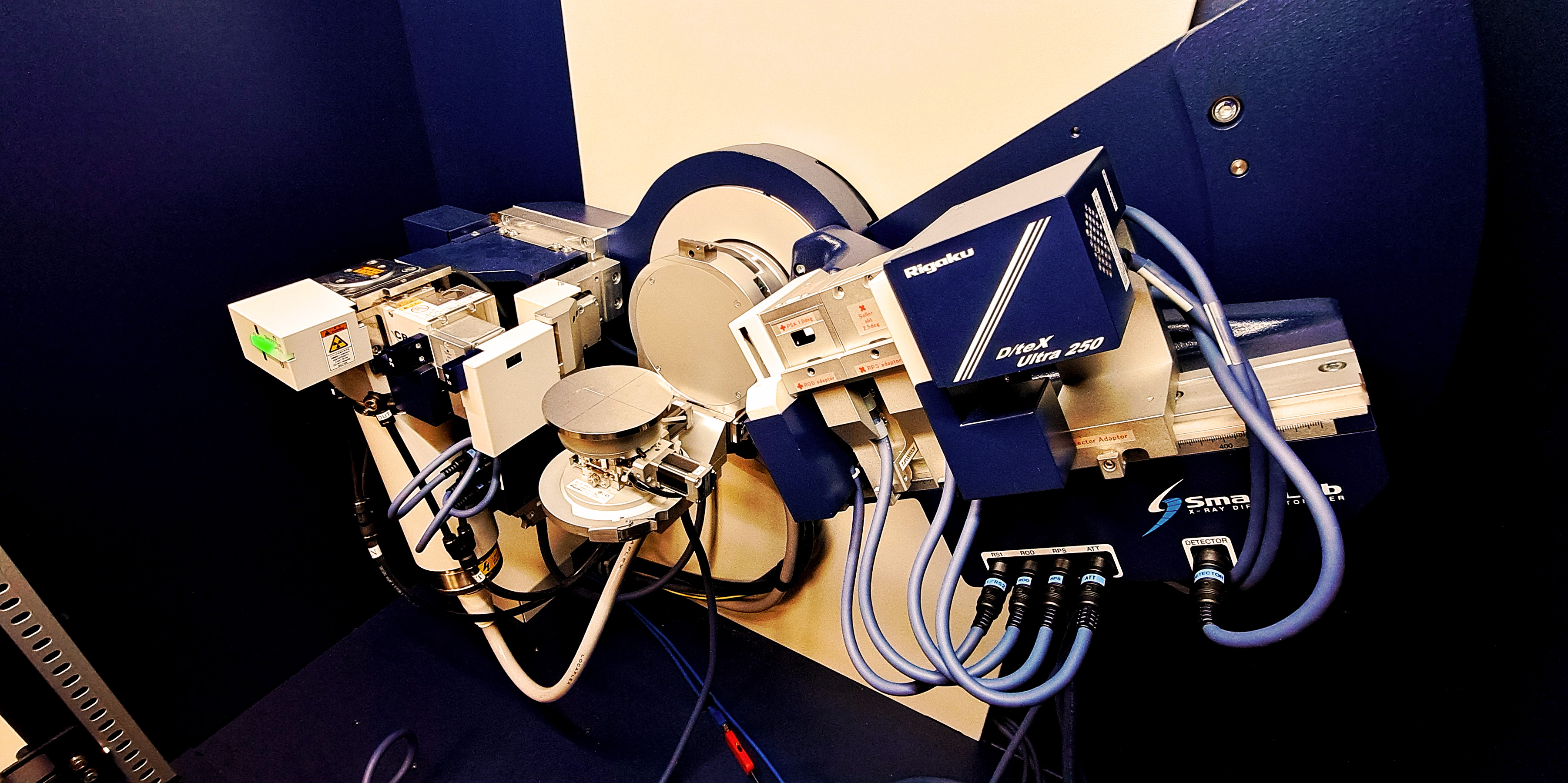
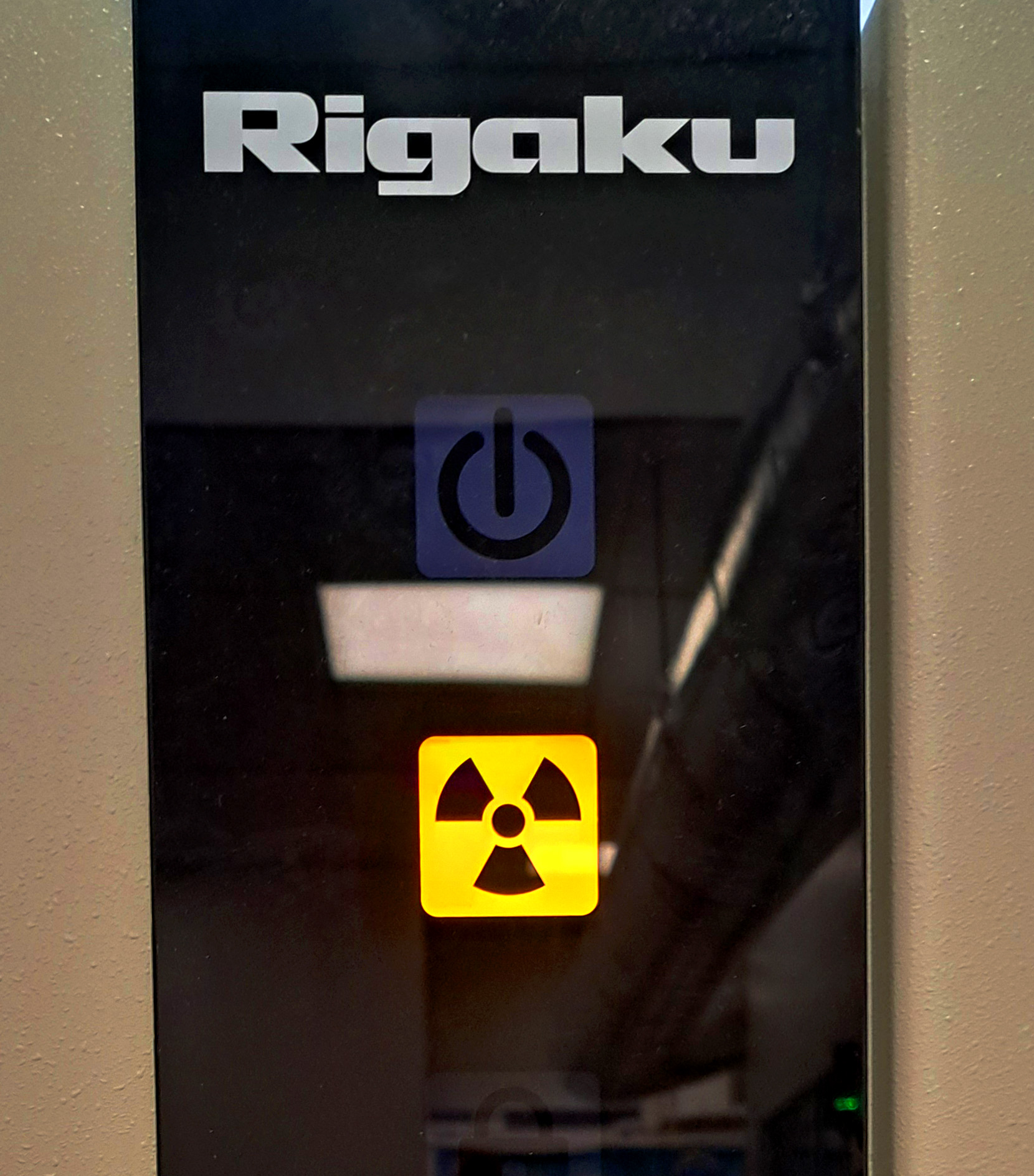
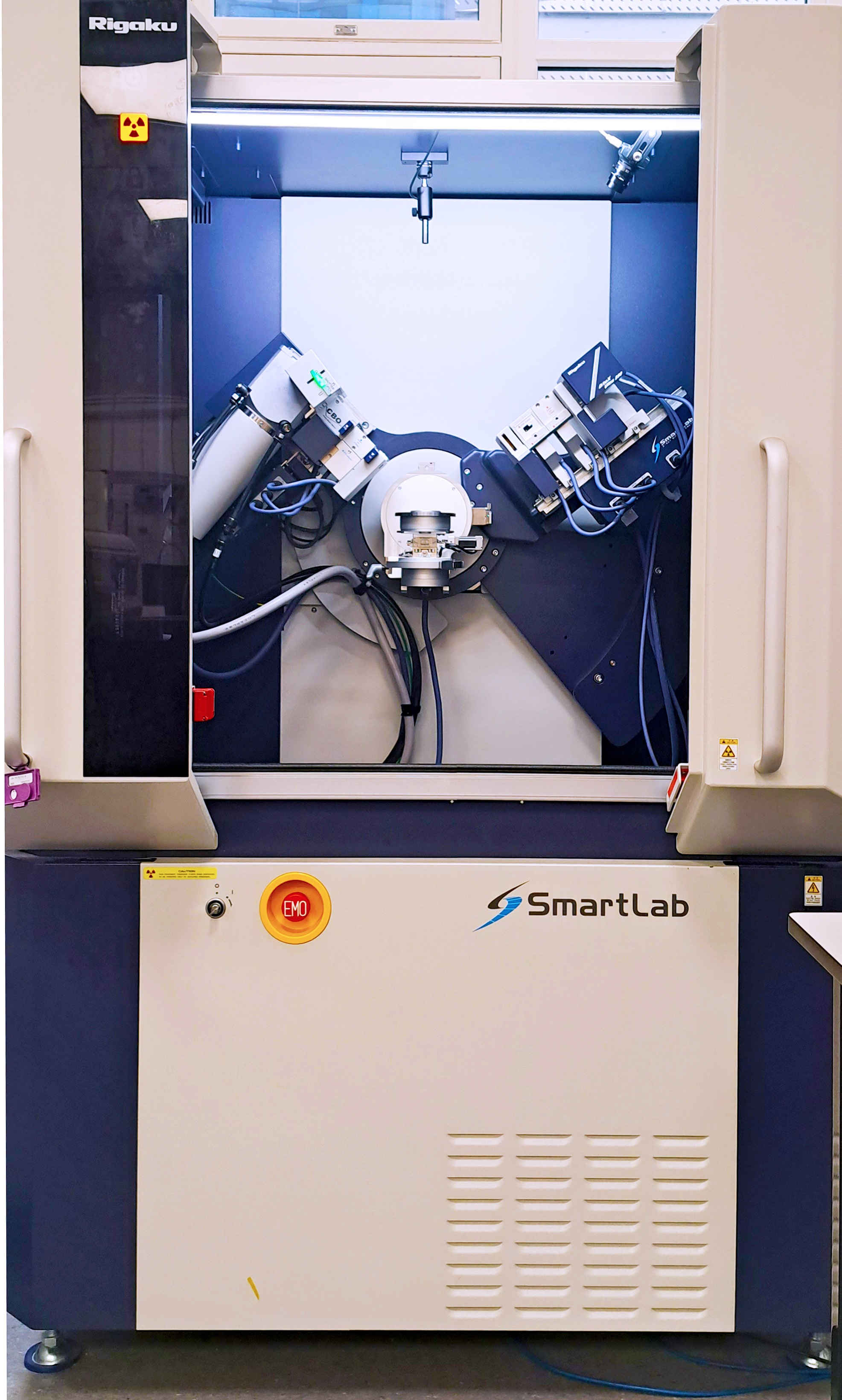
Atomic Force Microscope Dimension 3100
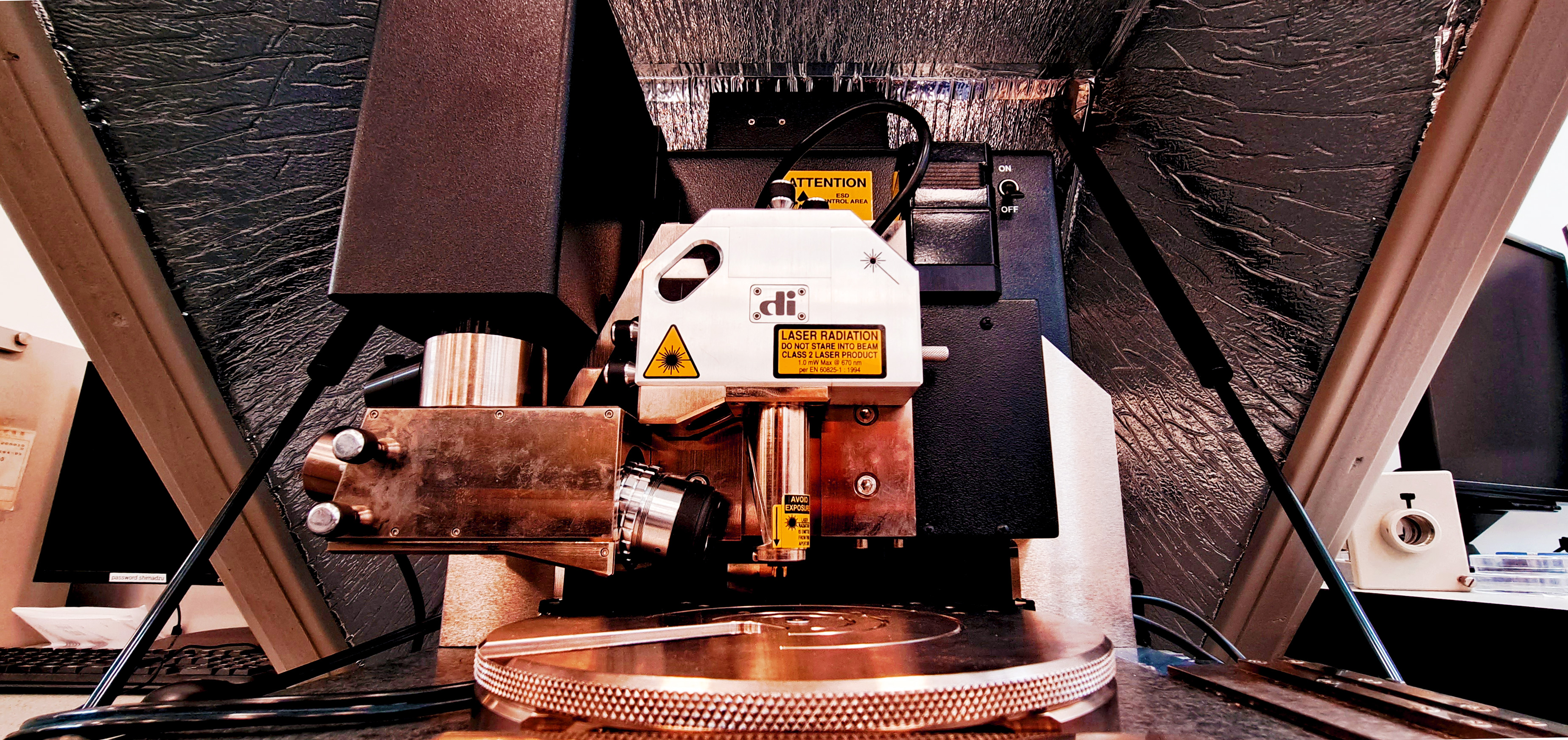
Smart Materials and Surfaces Lab
This bespoke laboratory is designed for both research and teaching. The combination of undergraduate and postgraduate research project provides a broad spectrum of research in interactions occurring at the interface between materials such as liquids, solids and gases. Research within the lab spans many areas from super-water repellent surfaces to creasing surfaces and microfluidics.
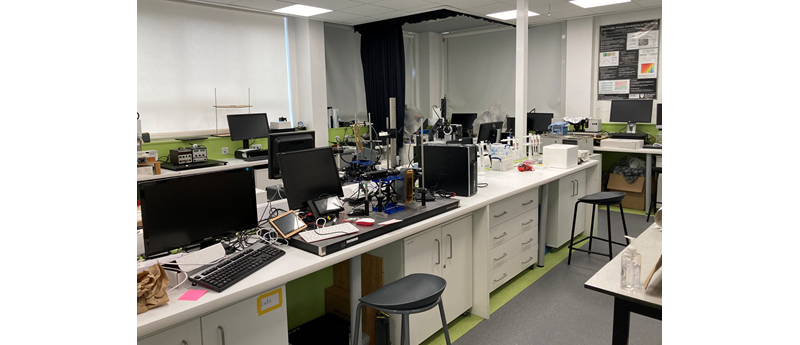
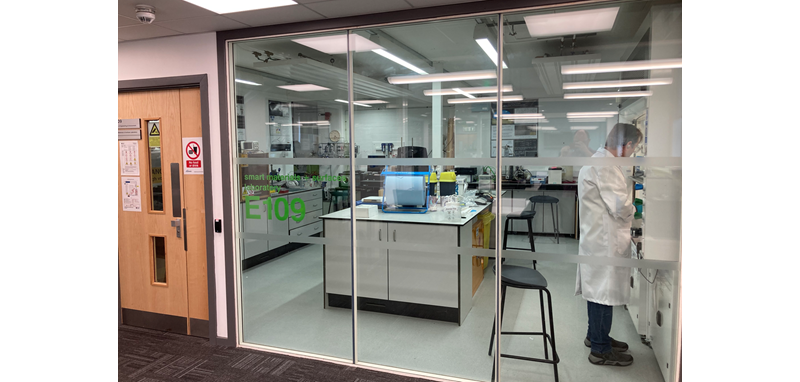
Optical Communications Lab
In this laboratory you will use a variety of high quality, industry-standard equipment, such as lasers and optical fibre to perform experiments. Extensively linked to our research in photonics you will experiment with Visible Light Communications; a state-of-the-art area in research. With optical communications growing ever more rapidly, this is your chance to get hands-on and understand how this important technology works and explore its many uses.
Space Technology Lab
The Department of Mathematics, Physics and Electrical Engineering has recently been successful with significant funding for space technology research from the UK Space Agency, the Science and Technology Facilities Council, Lockheed Martin, and the Office for Students. Therefore, we are now making a significant strategic investment to hire staff into key areas to enhance and expand our expertise in space-related technology. This strategic investment provides the opportunity for multiple appointments across multiple academic grades, including the potential to establish a small research group.
We are about to finish building and start commissioning the new Northumbria Space Technology Laboratory, which includes all of the state of the art facilities needed for environmental testing of small payloads for space as well as a dark room for class-4 lasers and optical system testing. We have a vibration shaker, an X-ray dose chamber and (arriving in January) a thermal vacuum chamber, all suitable for launch and low Earth orbit testing. We are seeking staff to use this facility to bring space instrumentation development and technology innovation that links to our existing areas of research excellence in the Faculty. That means: aurora, cameras, climate monitoring, comets, the cryosphere, geography, hyperspectral imagery, LIDAR, machine learning and AI, optical communication, outer planets, photovoltaics, sensors (IR, UV, visible) solar physics, space plasma, space weather, spectroscopy, telescopes.
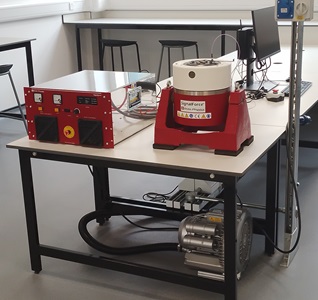
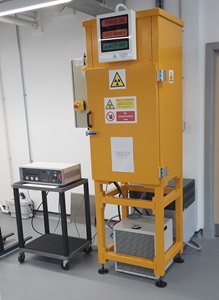
Examples of recent successes:
3D Printing Suite / Additive Manufacturing / Rapid Prototyping
Bring your design projects to life in our specialist 3D Printing Suite. Housing over £250kworth of equipment, including a variety of computer-controlled 3D printers and flatbed precision laser cutters, you will be able to make parts for your projects and create scale colour prototypes. Our specialist technicians have over 20 years’ expertise, meaning you are excellently supported.
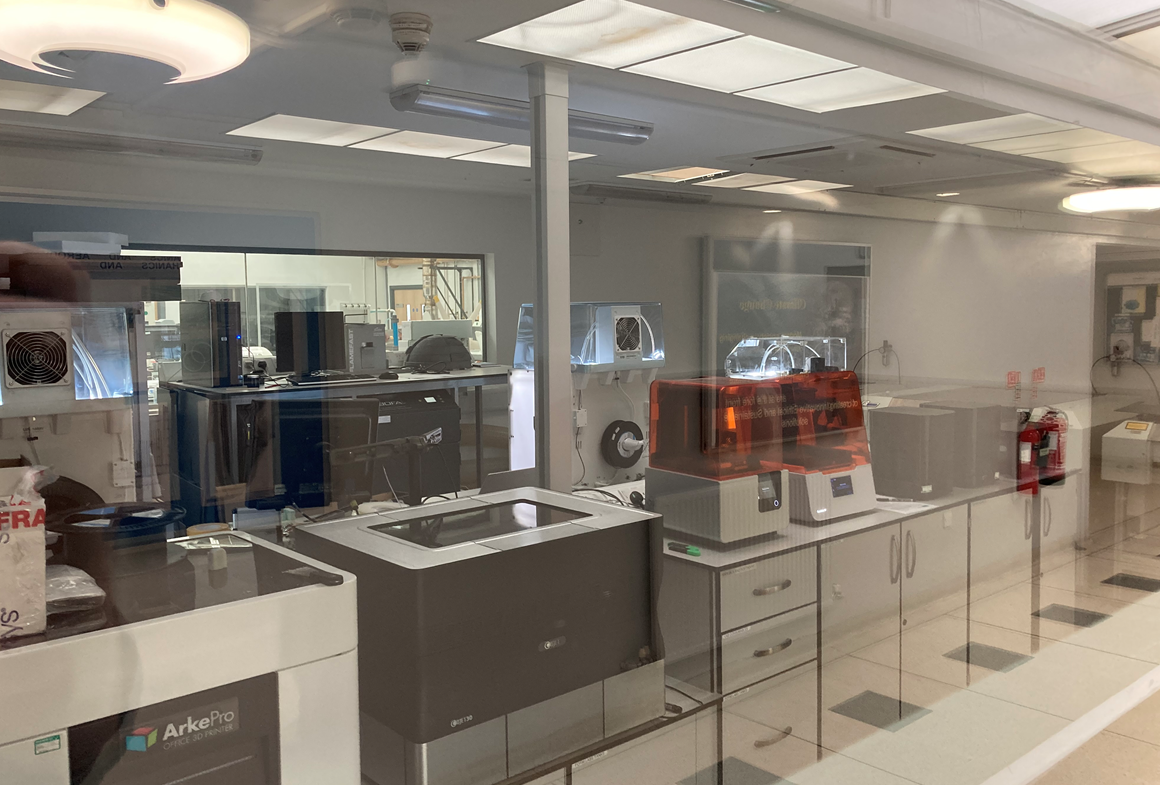
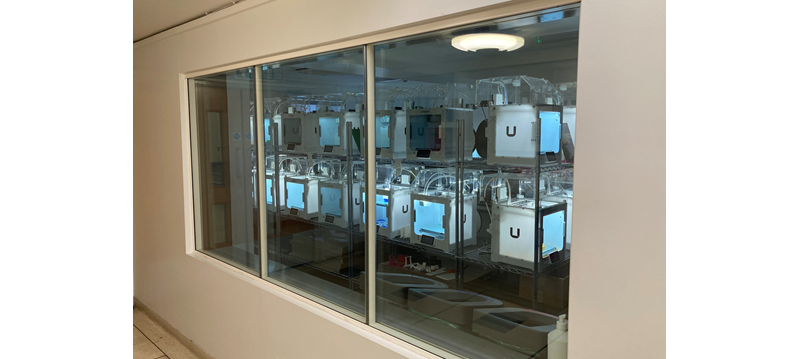
Electrical Power Lab
This lab has recently been re-equipped with new high-grade teaching equipment to help students and BEng and MEng levels get a good
understanding of power engineering.
The units available aren’t just computer simulations, but real items of power equipment, working on the same principles as the full sized real things, but in miniature. For instance, a 200MW steam generating plant is emulated by a 1kW generator driven by a dc electric motor. The results are like those found in real life, but scaled down.
The system is computer controlled, stored data obtained from real plant being used to control the emulation machines. The results are graphically displayed, and can be downloaded by students. It is thus possible to emulate a complete microgrid system, involving steam powered generating plant, PV and Wind renewable generation. Pumped storage can be included. The energy is then transmitted across
transmission lines to emulated loads representing domestic and industrial consumption. A computerised ‘Smart Grid’ controller allows renewable generation
to supply as much of the load as possible, to minimise the import of power from the Grid.
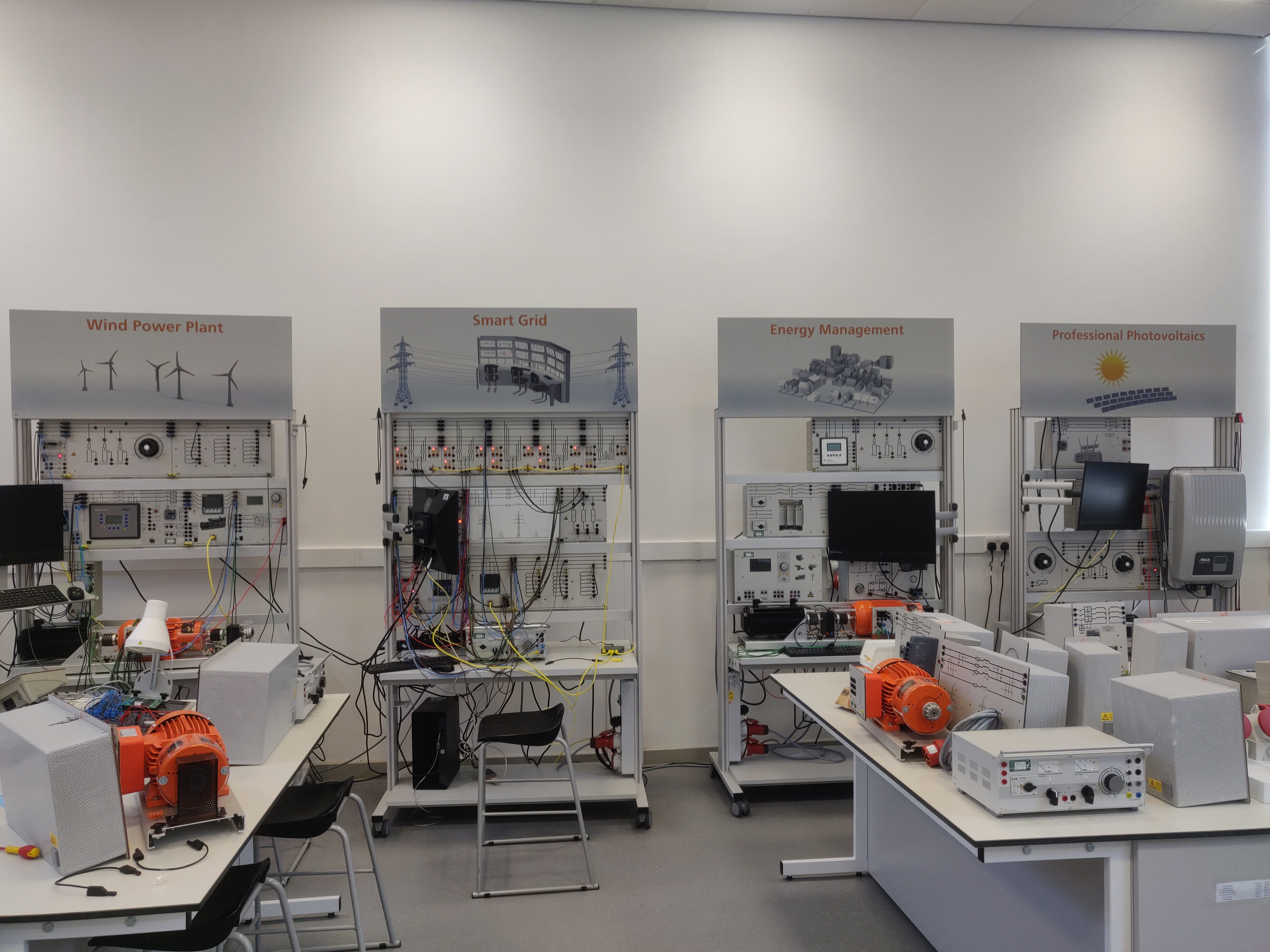
Electric Battery Lab
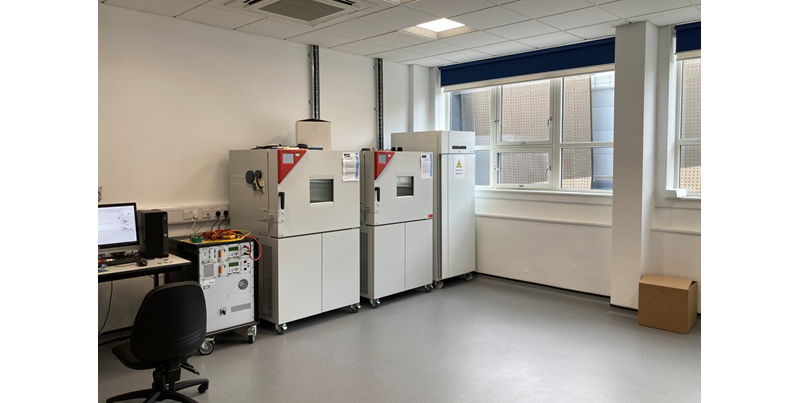
Electrical and Electronics Lab
A core laboratory for our electrical and electronic engineering students, you’ll gain practical experience of using an oscilloscope, signal generators and the National Instruments Educational Laboratory Virtual Instrumentation Suite (NI ELVIS) to measure and control signal voltages.
Communications Lab / Microwave Technology Lab
At the centre of some exciting research breakthroughs, this laboratory contains near-field and far-field antenna measuring systems and vector network analysers up to 40GHz. Using this technology you will be able to learn about antenna radiation pattern measurements, breast cancer detection, security screening for concealed weapons and plastic explosives, and other industrial imaging requirements. The lab includes our anechoic chamber.
Renewable Energy Lab
This laboratory houses the power and machines instrumentation along with a number of renewable energy activities from Wind energy conversion to Solar simulators for Photovoltaic panel testing. This lab is closely connected to our research work looking into Power networks, Wind energy, Photovoltaics and Electric vehicle battery testing.
Printed Circuit Board Fabrication and Smart-Materials-and-Surfaces Textiles Lab
The Department has its own dedicated printed circuit board (PCB)
fabrication service. Prototype PCBs can be manufactured quickly and easily on
campus to support students and staff undertaking projects, assignments and
research.
Service users simply email design files to the PCB
technician who will manufacture the board using a sophisticated
computer-controlled milling machine. Both single and double-sided PCBs can be produced and the machine also
drills holes for mounting points, through-hole components, and via pins. Users of the adjacent communications / microwave
technology lab appreciate the machine’s high level of precision when prototype
patch antennas are required.
The Smart-Materials-and-Surfaces Textiles Centre is also based in this lab and
hosts an impressive array of embroidery and sewing equipment, including an
advanced 10-needle electronically-controlled embroidery machine. The facility is used for research into
embroidered and wearable electronics.
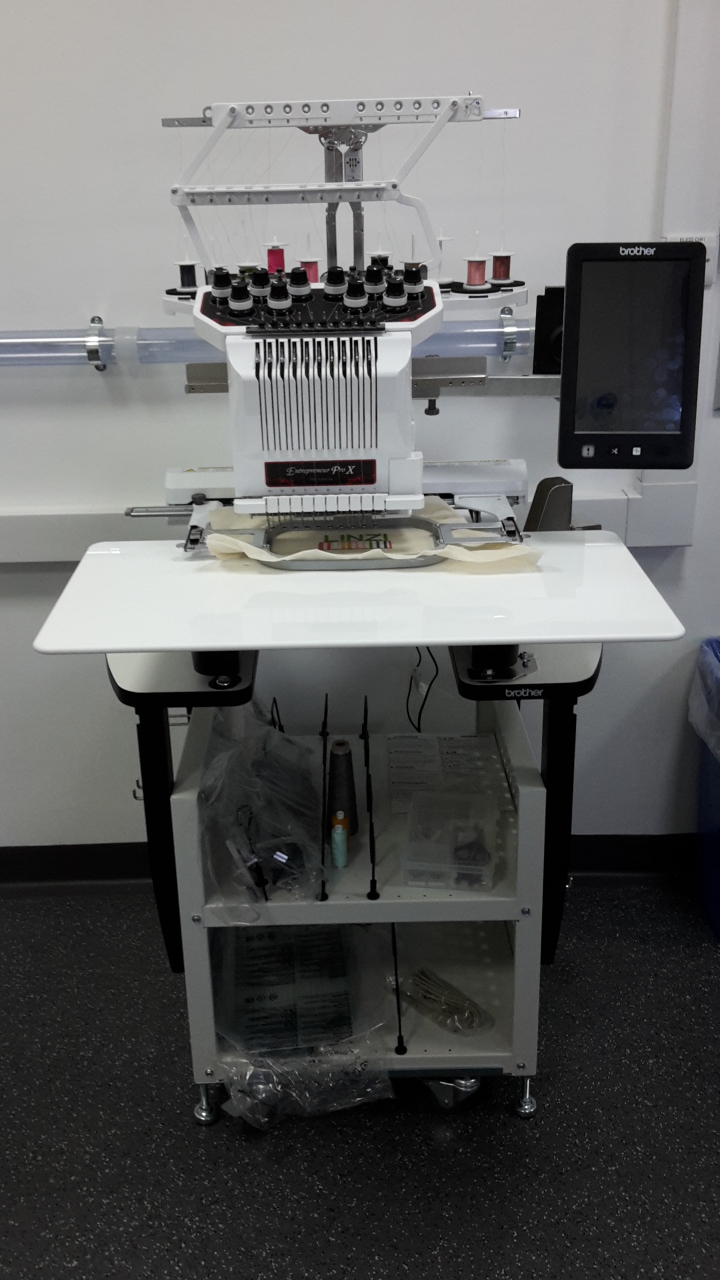
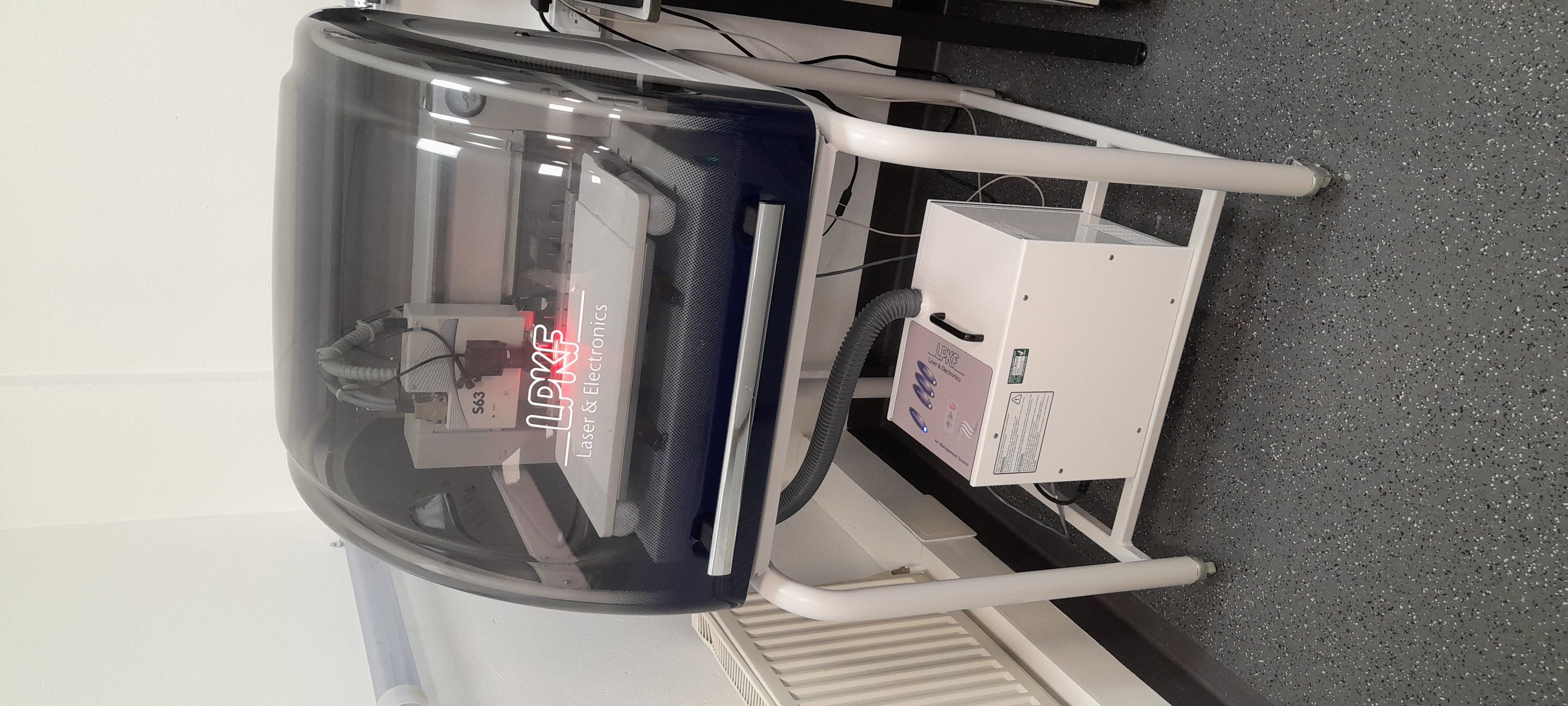
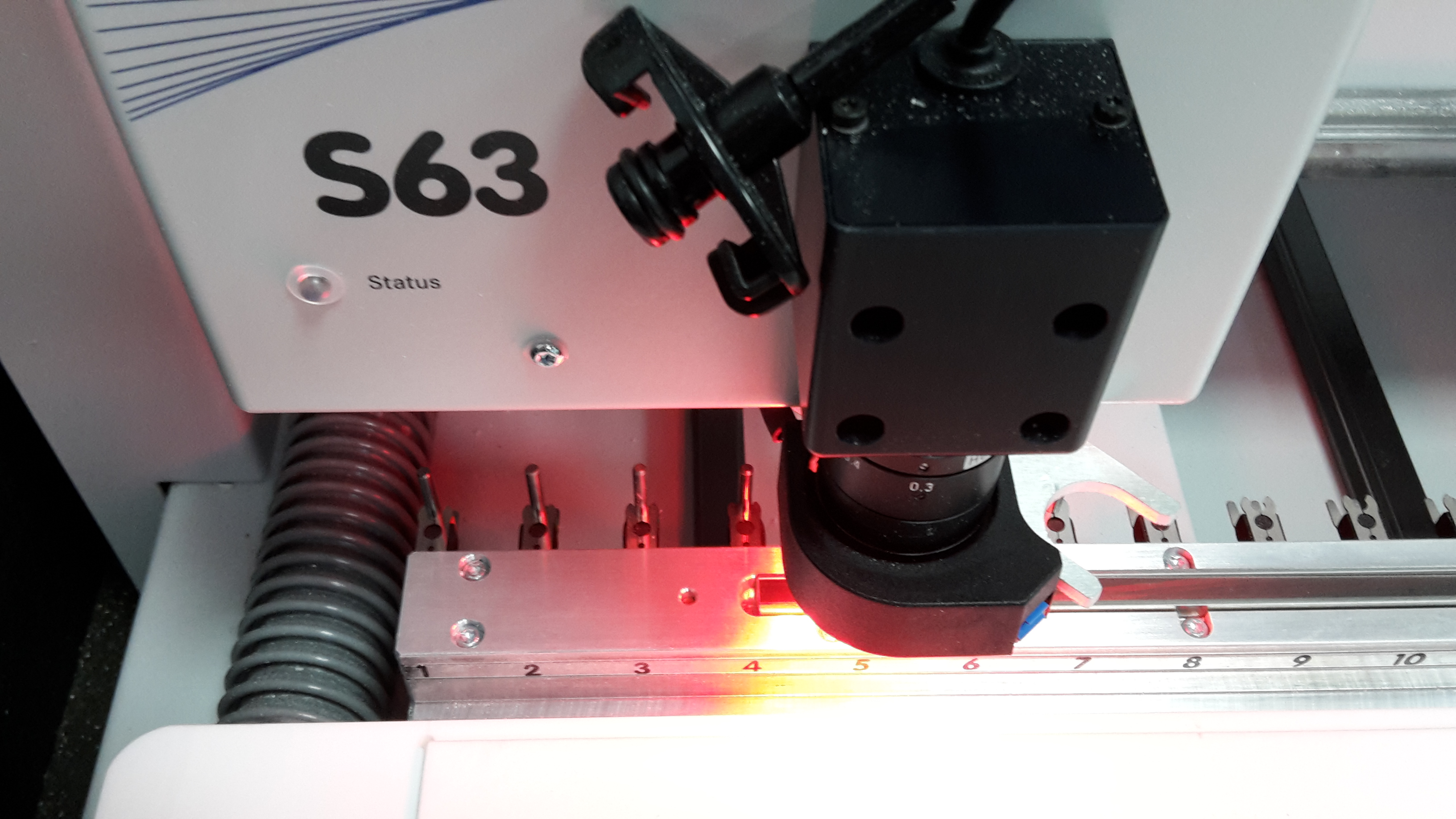
Undergraduate Physics Lab
Undergraduate Physics Lab
This core Physics teaching lab contains a variety of equipment to measure and experiment on invisible forces and physical phenomena. It houses a MUON detector, Leybold X-ray machine, mini anechoic chamber, dark room and Doppler effect equipment, allowing you to carry out a wide variety of physics investigations.
Physics Projects Lab
You will use these laboratories when carrying our research for your final-year undergraduate dissertation projects. They house a wide range of equipment for measuring and testing, including soldering irons, oscilloscopes, basic electronics equipment, programmable robots, a signal generator, renewable energy equipment, solar panels, National Instruments Educational Laboratory Virtual Instrumentation Suite (NI ELVIS) and Labview software.
Think Lab
NUSTEM
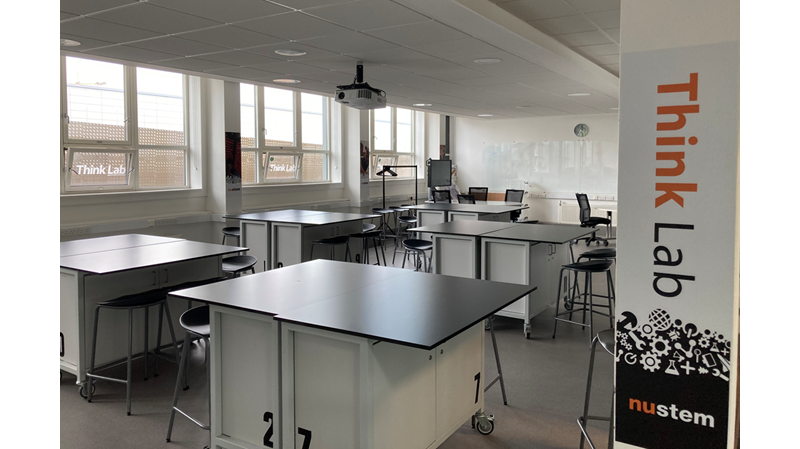
Mathematics Hub
This specialist laboratory is available to students when carrying out mathematical modelling research. Hosting PCs and powerful high-performance servers, the machines have specialised software for high-level numerical computation, such as the full MATLAB suite, Mathematica, MAPLE and IDL.
24-hour access / Open access Self Study Areas for students
The Zone
The Zone is a 24/7 light and airy, open-plan area popular with students undertaking group work or individual study. Based in the entrance from Northumberland Road to Ellison Building, it provides individual and group computer work stations with large screens to help students tackle their own work and group assignments comfortably.
The Space
The Space is an open plan area with individual computer work stations, soft seating and a meeting room to enable individual working and group discussions. Based on the third floor of Ellison Building E-Block, it is ideally located near Physics and Electrical Engineering teaching laboratories and our Think Physics, Think Engineering Outreach laboratory.
The Hub
The Hub is a working space with computer stations and large round tables to facilitate individual working and group work. Based on the second floor of Ellison Building B-block, it is ideally located for breaks in lectures and seminars.
Wynne Jones Student Areas
Wynne Jones Student Areas have a number of areas available including Project Space - a purpose built space that is used to exhibit student work at degree show time. It is also home to computer stations for individual study and there is room for group discussions.
“My favourite place on campus is the NUSTEM open-access space. It has great resources for individual work at workstations, and informal breakout areas with whiteboard tables for collaborative work which have been extremely useful this year.” Steven Armstrong, BSc (Hons) Physics






































